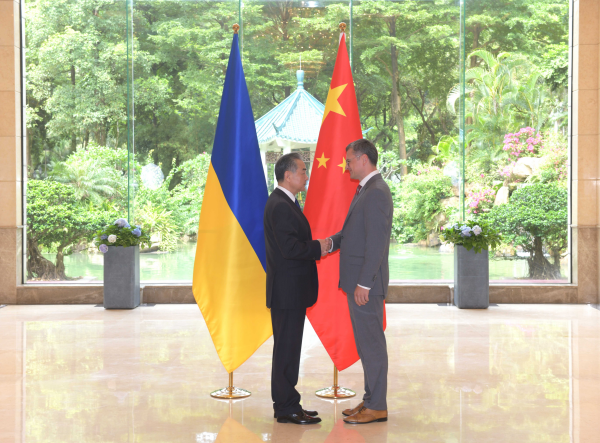Ukraine is currently in discussions with China to expand exports of various agricultural products, including peas, wheat flour, livestock feed, beef, corn, poultry, and wild-caught aquatic products. The protocols for these exports are at different stages of development and approval, with the pea protocol nearing completion in Ukraine and awaiting consideration by Chinese authorities. Draft protocols for poultry and fish are also under review, while the protocol for wild-caught aquatic products has passed domestic approval and is pending final approval from China. This move comes as China’s economic ties with Russia have strengthened since Russia’s invasion of Ukraine, with trade between the two countries surging by 121% since 2021. Despite its neutral stance on the war, China aims to capitalize on economic opportunities and increase geopolitical influence.
In addition to expanding exports to China, Ukraine is set to increase its capacity to export electricity to Ukraine to 2.1 gigawatts ahead of winter. The new limit will take effect on Dec. 1, 2024, and operators will be able to review it monthly starting in March 2025. This move aims to support Ukraine’s energy needs during the winter months, ensuring a stable supply of electricity. The increase in capacity highlights the importance of energy security in Ukraine, especially in the face of geopolitical tensions and conflicts with Russia.
The discussions between Ukraine and China regarding agricultural exports reflect a broader trend of countries seeking to diversify their trade relationships to mitigate geopolitical risks. By expanding its export markets beyond traditional partners, Ukraine aims to strengthen its economic resilience and reduce dependency on any single market. This strategy aligns with global efforts to promote economic diversification and reduce vulnerability to external shocks, such as conflicts or political instability.
The growing economic ties between China and Russia, in the context of the conflict in Ukraine, underscore the complex web of geopolitical dynamics shaping global trade. While China maintains a neutral stance on the war, its economic interests drive its interactions with both Russia and Ukraine. As countries navigate these intricate relationships, ensuring economic stability and security becomes paramount. The expansion of agricultural exports and energy cooperation between Ukraine and China reflects the pragmatic approach taken by countries to safeguard their economic interests in the face of geopolitical challenges.
Overall, the discussions between Ukraine and China signify a strategic effort to expand trade relations and enhance economic cooperation. By tapping into new markets and diversifying export options, Ukraine aims to strengthen its agricultural sector and ensure a stable source of income. In parallel, the increase in electricity export capacity underscores the importance of energy security in Ukraine, particularly in the context of geopolitical tensions and conflict. As countries navigate the complexities of global trade, finding common ground and maximizing economic opportunities become crucial for long-term stability and growth.


